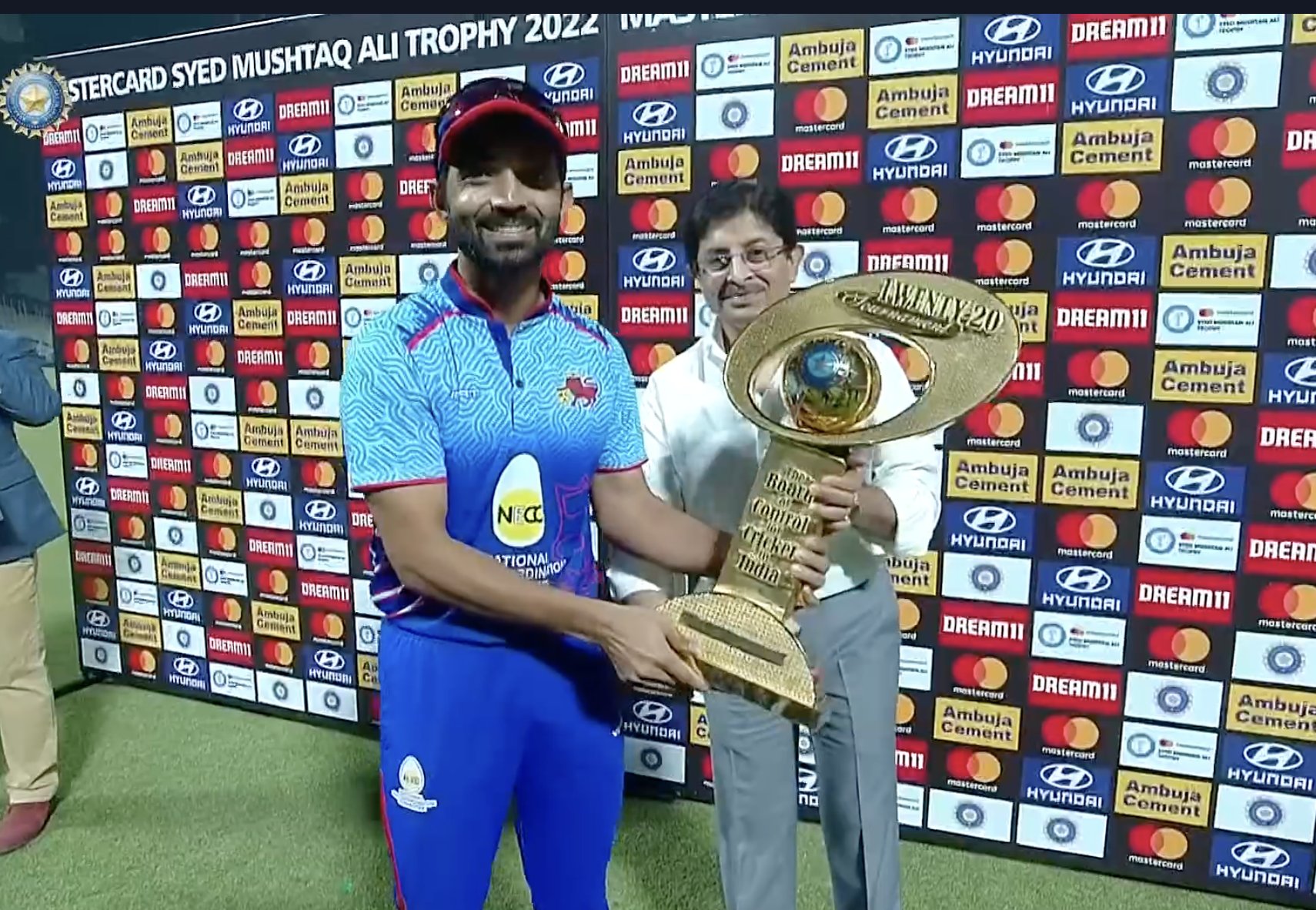Latest News

How Mumbai solved the elusive trophy puzzle

Much as the Mumbai players have the well known Khadoos disposition, they actually appear to trust in a hint of mindlessness, on the off chance that one might say as much, and it is unfathomable that for a homegrown stalwart like Mumbai, odd notions can assume a part in their triumphs. Ajinkya Rahane said exactly that during the show party of the Syed Mushtaq Ali Prize.
"I didn't go to Kolkata for the last in light of a notion," surrendered Salil Ankola, the main selector of the Mumbai group. He was in Indore during the Ranji Prize last prior this year when the group had missed the mark in the match. "Perhaps, my presence is certainly not a promise of something better for the side," Ankola, a previous India pacer, said with an idea of help of not encountering the feeling of history repeating itself.
Luxurious convictions were there in mentor Amol Muzumdar as well. Typically, he would possibly stand when Mumbai bat thus a lot so he was standing all through when Sarfaraz Khan was crushing 275 in a Ranji game the year before. A similar example continued in the Ranji last yet goodness! On Saturday night at the Eden, he chose to sit down understanding that there might be a curse to his upstanding daily practice. "During the later snapshots of the match, I chose to plunk down," Muzumdar giggled out during a discussion with Cricket post the exhilarating last.
Odd notions separated, the Mumbai group has been focusing on the public Twenty20 title that has been absent from their titanic prize bureau. While most Mumbai players have all-design abilities, the selectors picked a couple of players in light of their white ball capacities. Aman Khan and Sairaj Patil are the white ball experts in the crew and were specifically utilized. "A ton of credit goes to the selectors," said Muzumdar, a Mumbai legend, commending the selectors' work.
Patil was the assigned Effect Player (a sort of Super Sub who can be named by a group before the twelfth over) of an innings. He was to be utilized in that job in the last too after early loss of wickets yet the group the board chose to rest trust in the regulars who, eventually, conveyed the lady SMA Prize.
While crediting the whole group for the triumph, captain Rahane singled out Tanush Kotian for the progress in the last against Himachal Pradesh. Kotian, an off-turning all-rounder, praised his magnificent three-wicket pull with a triumphant blow for the side in the strained last minutes. Safaraz, obviously, represented the Khadoos mentality of the side during the last, playing a naturally game dominating thump that he had so frequently finished for the Mumbai group.
Rahane himself was a flake-out in the last, as he had been all through the competition (112 runs in eight games), yet Ankola felt the captain left areas of strength for a with his administration abilities. "He is the Commander Cool of Mumbai and his quieting impact in essential circumstances was significant to the fruitful mission," said Ankola.
The red ball design, at any rate, is Mumbai's strength. Muzumdar, a batting machine during his playing days in the homegrown circuit, set himself and the side an objective that the group should do well in the white ball design at any expense when he assumed responsibility last year. In his absolute first year, Mumbai won the Vijay Hazare Prize and one year on the Twenty20 Prize, the one evading the side, came their direction.
"It was not just about setting targets. A ton of exertion went into it as well," Muzumdar made sense of. He had a long camp at the BKC (in Mumbai) before the beginning of the time where the emphasis was on handling, wellness and uniquely power hitting. Taking into account the flighty climate of Mumbai in September, the camp was moved to Ahmedabad where the group likewise played a couple of cordial games with Gujarat and Rajasthan. The planning was wonderful to the point that besides in the last, the group was scarcely tried during the competition.